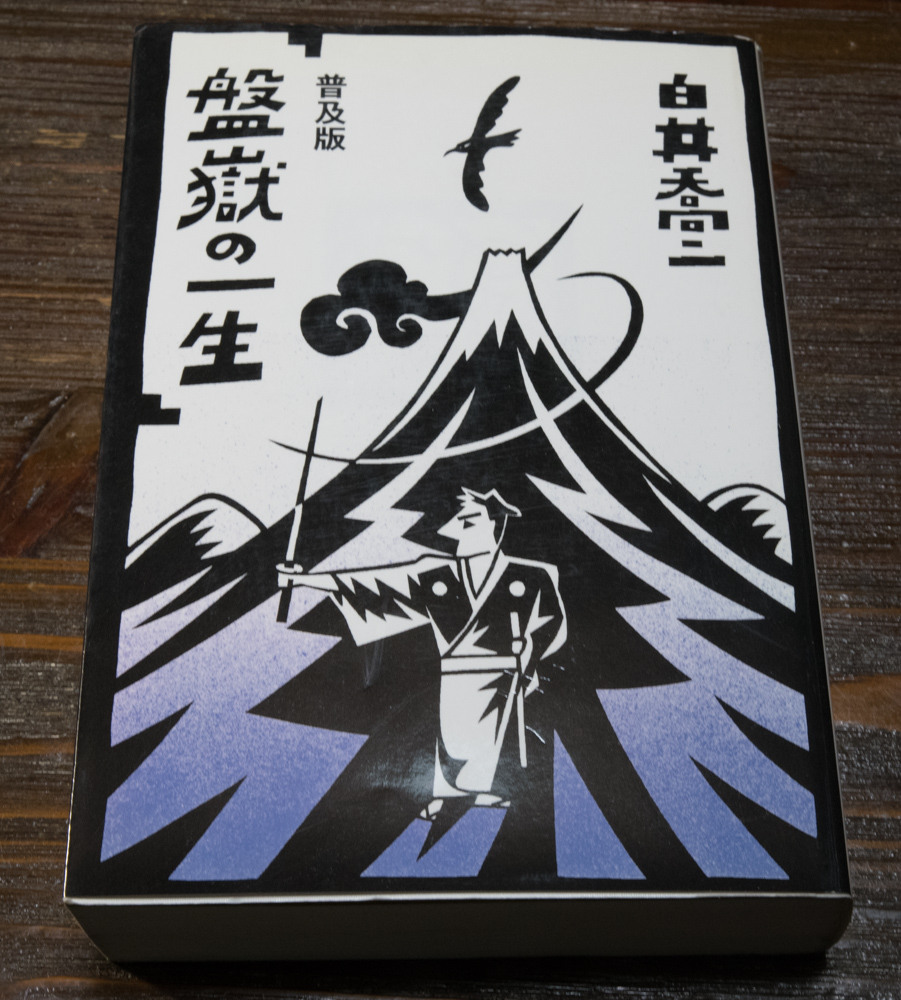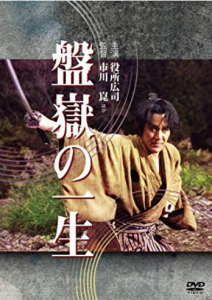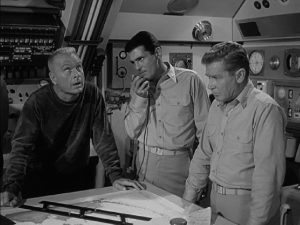 Let me introduce today one of the most impressive novels of Kyoji Shirai: Bangaku no Issho (The life of Bangaku, “盤嶽の一生”). This novel is a collection of short stories featuring Bangaku that Kyoji wrote for several magazines from 1932 to 1935.
Let me introduce today one of the most impressive novels of Kyoji Shirai: Bangaku no Issho (The life of Bangaku, “盤嶽の一生”). This novel is a collection of short stories featuring Bangaku that Kyoji wrote for several magazines from 1932 to 1935.
As the title shows, this novel describes the life of Bangaku Ajigawa (“阿地川盤嶽”), a lone wolf Samurai worrier, who loves rightness and always try to find it and is eventually betrayed. He was born in Bushu (the curent Saitama-Tokyo-Kanagawa area) and lost his father at 12 years old and his mother at 14. After the death of his parents, he was raised by his uncle, but because the daughter of his uncle (namely his cousin) disliked him much, he left his uncle’s house when he became an adult. Since his skill of swordplay reached the expert level when he was 26 years old, his master gave him a noted sword named Heki Mitsuhira (“日置光平”) .
As I wrote in my introduction of Kyoji Shirai’s life, Kyoji inherited the sense of justice from his father who was a policeman when he was born. Bangaku can be considered to be an alter ego of Kyoji. All Christians know the Jesus’ Sermon on the Mount: “Blessed are they which do hunger and thirst after righteousness: for they shall be filled.” (Mattew 5.6, KJV). Bangaku is truly one of those who do hunger and thirst after righteousness. If he were a Christian, he might have been filled, but he was not.
Repeated stories of Bangaku that he expects righteousness and he is finally betrayed and disappointed are funny but sad at the same time. For example, when he was living in a slum of the Edo city, he sympathized with miserable workers of a match factory. Since he had some scientific knowledge, he tried to construct an automated machine of match production in order to reduce the heavy work of the workers. When the machine was completed, however, the owner of the factory fired many workers because he can save them by the power of the machine. If we see another example, Bangaku tried once a fortune-telling play by throwing some unglazed dishes (fortune is judged by how dishes broke) because he thought that such thing can be completely coincidental and no human malicious intention is included. The truth was, however, the fortune-teller was preparing several patterns of broken dishes in advance and was selecting the results according to the economical status of the customer.
Bangaku gradually lost any expectation for adults and started to hope for young people. But some young guys betrayed him bitterly and then he started to hope for children, or finally for babies. All his trials were not satisfactory at all.
These stories had not been finished. IMHO, the author, Kyoji, could not find out an appropriate end for these stories, or he might have thought that Bangaku, a kind of dreamer, should wander in the limbo between expectation and disappointment eternally.
This novel was picturized twice and made to a series of TV drama also twice.
The first movie was taken by Sadao Yamanaka in 1933. Sadao Yamanaka was a gifted movie director but died as a soldier in China at the age just 29. While Kyoji Shirai was not satisfied with most movies based on his stories, he evaluated the talent of Sadao Yamanaka very highly. Although the film itself was lost by war, there was a legendary scene in the movie where some thieves of watermelon (Bangaku was having his eyes on a watermelon field in the night) act like rugby players passing a watermelon from one to another. Kon Ichikawa, a Japanese movie director who picturized the first Tokyo Olympic in 1964, watched this movie of Bangaku when he was a child, and he scripted for the TV drama of Bangaku broadcasted in 2002. Bangaku was played by Koji Yakusho (“役所広司”).

 「謎の円盤UFO」を観終わったので、今日から「原子力潜水艦シービュー号」の第1シーズン。取り敢えず第1シーズンのDVDだけ買ってあります。第2、第3シーズンも続けて観るかどうかは未定。第1シーズンはまだ白黒です。今回のお話は、2つの巨大地震の発生が予知され、その2番目の地震で世界中の多くの地域で巨大津波が発生することが報告されます。シービュー号のネルソン提督がその大津波を防止するために、北極で核爆弾を爆発させて地震のエネルギーと相殺させて津波の発生を防ぐことを提案します。(どうでもいいですが、映画版でもそうでしたが、核兵器の威力を買いかぶっています。自然のエネルギーは水爆一発なんかよりはるかに巨大です。)この時国連で審議する科学者の中に、タイムトンネルの老科学者の俳優(ジョン・ザレンパ)が出ていました。多分この役者さんアーヴィン・アレンのお気に入りだったんでしょう。そういう訳でシービュー号は北極に向かいますが、それを阻止しようとする某国が登場し、飛行機から機雷を投下したり、また潜水艦で追いかけてきて魚雷を発射してシービュー号を撃沈しようとします。機雷によってソナーが損傷してアンテナ部が海底に落ちてしまったのを、ダイバー3人が拾いに行きます。そこでお約束のサメ(北極の近くにサメがいるとは思えないんですが)と大イカが…(映画版にも出てきたので多分そのフィルムの使い回しでは。)結局色々ありましたが、シービュー号のミッションは成功し、クレーンが正式に艦長に就任します。
「謎の円盤UFO」を観終わったので、今日から「原子力潜水艦シービュー号」の第1シーズン。取り敢えず第1シーズンのDVDだけ買ってあります。第2、第3シーズンも続けて観るかどうかは未定。第1シーズンはまだ白黒です。今回のお話は、2つの巨大地震の発生が予知され、その2番目の地震で世界中の多くの地域で巨大津波が発生することが報告されます。シービュー号のネルソン提督がその大津波を防止するために、北極で核爆弾を爆発させて地震のエネルギーと相殺させて津波の発生を防ぐことを提案します。(どうでもいいですが、映画版でもそうでしたが、核兵器の威力を買いかぶっています。自然のエネルギーは水爆一発なんかよりはるかに巨大です。)この時国連で審議する科学者の中に、タイムトンネルの老科学者の俳優(ジョン・ザレンパ)が出ていました。多分この役者さんアーヴィン・アレンのお気に入りだったんでしょう。そういう訳でシービュー号は北極に向かいますが、それを阻止しようとする某国が登場し、飛行機から機雷を投下したり、また潜水艦で追いかけてきて魚雷を発射してシービュー号を撃沈しようとします。機雷によってソナーが損傷してアンテナ部が海底に落ちてしまったのを、ダイバー3人が拾いに行きます。そこでお約束のサメ(北極の近くにサメがいるとは思えないんですが)と大イカが…(映画版にも出てきたので多分そのフィルムの使い回しでは。)結局色々ありましたが、シービュー号のミッションは成功し、クレーンが正式に艦長に就任します。